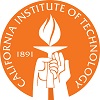Job Description
Major
The history and philosophy of science (HPS) option develops knowledge and understanding of the historical evolution of the physical and biological sciences and the philosophical perspectives that inform them, as well as the dynamics between science, technology, and other human endeavors.
HPS courses in history help students learn about the origins of theoretical and experimental practice; the social and institutional contexts of science; the origins and applications of quantitative methods; and specific developments since antiquity in the mathematical, physical, and life sciences, in geography and cartography, and in space technology. Students learn to use social, political, biographical, and comparative analytic methods for the study of these fields. HPS courses in philosophy deal with issues in causation and explanation; the foundations of probability and statistical inference; and philosophical problems in biology, mathematics, medicine, neuroscience, and physics. They address ethical issues of significance, such as scientific fraud and misconduct, and human-machine interactions. Students can also minor in HPS.
Minor
The minor in HPS is designed for students who want to pursue concentrated study in the field without the extensive course work and the senior thesis required by the HPS option.
History and Philosophy of Science Coursework at a Glance
HPS/H 176. The Occult Origins of Modern Science: Alchemy, Astrology, and Magic. Modern science is often described as a rational, empirical, and objective search for truth about nature. But how, when, and why did science come to acquire these qualities? Many scholars look to the exciting developments and discoveries of the sixteenth and seventeenth centuries in Europe-the so-called “Scientific Revolution”-as the defining period for the emergence of modern science. If “modern” science is defined in these terms, then “premodern” science must have looked more like pseudo-science, superstition, or myth. However, that is far from the truth. In this course, we’ll work to uncover the role that the occult sciences, including alchemy, astrology, and magic, played in the formation of modern science. Our studies of the occult sciences will force us to think more deeply about what distinguishes modern science from the occult sciences, and to question why their role in the development of modern science has also been obscured.


